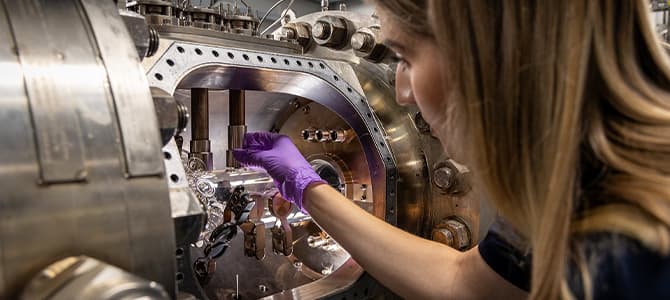Today (Monday 25 September), the company announced achieving a new world industry first as they, alongside easyJet, look to lead in the development of hydrogen combustion engine technology capable of powering a range of aircraft.
Working with Loughborough’s National Centre for Combustion and Aerothermal Technology (NCCAT) and the German Aerospace Centre Deutsches Zentrum für Luft-und Raumfahrt (DLR), Rolls-Royce has proven a critical engine technology that marks a significant step in the journey to enabling hydrogen as an aviation fuel.
Tests on a full annular combustor of a Pearl 700 engine at DLR in Cologne running on 100% hydrogen have proven the fuel can be combusted at conditions that represent maximum take-off thrust.
Key to that achievement has been the successful design of advanced fuel spray nozzles to control the combustion process. This involved overcoming significant engineering challenges as hydrogen burns far hotter and more rapidly than kerosene. The new nozzles were able to control the flame position using a new system that progressively mixes air with the hydrogen to manage the fuel’s reactivity. Rolls-Royce is pleased to confirm that combustor operability and emissions were both in line with expectations.
The individual nozzles were initially tested at intermediate pressure at Loughborough’s recently upgraded NCCAT test facilities and at DLR Cologne before the final full-pressure combustor tests took place at DLR Cologne.

